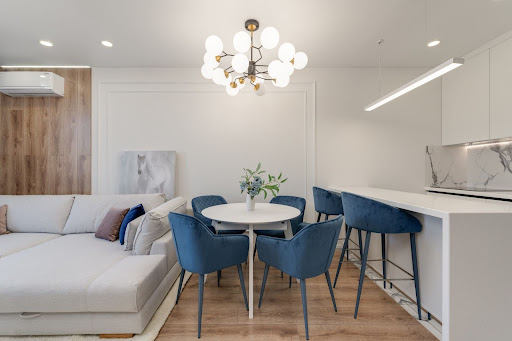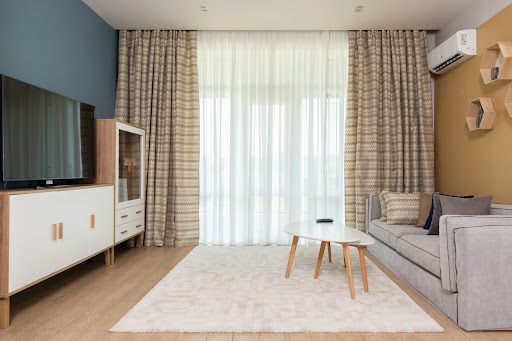Renovating a house in Ireland can be both exciting and a bit overwhelming financially. As the real estate market changes and people’s preferences evolve, many homeowners consider making updates to their homes. But managing the costs of renovations can be tough without the right guidance. In this article, we’ll look at ways to save money on house renovations, explore different types of renovations, talk about smart ways to invest in your home, and provide helpful tips for a successful house renovation in Ireland.
How to Save Money on House Renovation
Although it’s commonly held that price is usually a good indicator of quality,there are a couple of tricks that might actually help you save a significant portion of your budget. Discover practical tactics to keep your renovation budget in check while achieving your desired transformation:
A well-thought-out plan is essential for a cost-effective renovation. Outline your goals, priorities, and budget constraints before initiating any work. A clear plan helps prevent unexpected expenses and keeps the project on track.
Begin by researching and comparing cost-effective, durable materials, favouring locally sourced options to mitigate transportation expenses. Additionally, enhance efficiency by bundling tasks during your renovation; merging plumbing and electrical work, for example, can optimise labour costs and streamline the project.

Other important considerations to take into account:
Energy efficiency: Opt for energy-efficient solutions, such as LED lighting, energy-efficient appliances, and proper insulation. While the initial investment might be higher, these choices lead to long-term savings on utility bills.
DIY vs. professional help: While some tasks demand professional expertise, there are areas where your own skills can shine. Painting, minor landscaping, or even tiling are tasks that homeowners can tackle without compromising quality.

Energy efficiency: Opt for energy-efficient solutions, such as LED lighting, energy-efficient appliances, and proper insulation. While the initial investment might be higher, these choices lead to long-term savings on utility bills.
DIY vs. professional help: While some tasks demand professional expertise, there are areas where your own skills can shine. Painting, minor landscaping, or even tiling are tasks that homeowners can tackle without compromising quality.
Types of Home Renovation and costs
When considering house renovations, there are several options available, each with varying costs. Here’s an overview of popular renovation types along with associated expenses:
1.Surface-Level Renovations
These renovations are budget-friendly as they typically involve cosmetic updates without altering the home’s structure. Costs usually stay under €5000. Surface-level renovations encompass activities like repainting, installing new flooring, and updating the kitchen.
2.Medium-Level Renovations
Medium-level renovations involve structural changes such as extensions, garage conversions, and loft renovation. These projects generally require around £5500. Factors contributing to costs include:
Material Cost: The overall expense of required materials, dependent on project size and complexity.
Labour Cost: Costs linked to tradespeople for the renovation work, varying based on project scope.
3.Full-House Renovations
An old house renovation covers significant portions of the property, ranging from minor enhancements to complete rebuilds. Costs for these projects typically fall between £1000 and £1500 per square metre. This category includes:
Kitchen Renovation: Expenses for kitchen renovation vary widely based on the extent of the project. A simple facelift with new doors, worktops, and appliances will be more economical, while a full gutting and refit will be costlier. Generally, kitchen renovations range from £8000 to £10,000.
Bathroom Renovation: Similar to kitchens, bathroom renovation costs hinge on project size and complexity. The average expense ranges from £8000 to £10,000.

Living Room Renovation: Costs for revamping your living room are influenced by room size and desired changes. A basic refresh involving new paint and furniture might cost around £3000. For more extensive alterations, such as wall removal or new features, budgets could extend to around £10,000.
Incorporating these renovations can enhance your home’s aesthetics and functionality. Remember that actual costs may vary based on location, materials, and project intricacies. Conducting thorough research and obtaining multiple quotes will help you make informed decisions for your house renovation journey.

How to Invest in Renovations
A house renovation isn’t just an expense – it’s an investment that can yield long-term returns. By making savvy choices during your renovation journey, you can enhance your home’s value and appeal, all while ensuring that your financial resources are put to good use. Following this, you will discover how to strategically invest in renovations that withstand the passage of time and attract potential buyers.

- Clarify your objectives and define your goals before making an investment. Are you renovating to increase your home’s resale value, enhance your living experience, or a combination of both? Understanding your goals will guide your investment decisions.
- Research the market: certain renovations, like kitchen or bathroom upgrades, tend to yield higher returns on investment when it comes to selling your property.

- Allocate your budget wisely across different aspects of the renovation. Prioritise areas that will have the most impact and consider potential hidden costs that may arise during the project.
- Seek advice from professionals like estate agents, architects, and interior designers. Their expertise can help you make informed decisions that align with your investment goals.
- Consider the long-term value of your renovations. While some trends may be popular now, they could become outdated in a few years. Opt for timeless designs and quality materials that will stand the test of time.

Tips for House Renovation:
Renovations often come with unexpected challenges. Be prepared to adapt your plans and budget as needed to accommodate unforeseen circumstances.
Good communication is the key .Clearly convey your expectations with your contractors, and regularly check in on the progress to address any concerns promptly.
Quality Over Quantity: It’s tempting to cut costs by choosing cheaper materials, but compromising on quality can lead to more expenses down the road. Invest in durable, high-quality materials to ensure the longevity of your renovations.

NOTE! Set aside a contingency fund to cover any additional costs that may arise during the renovation. A general rule of thumb is to allocate 10-20% of your budget for unexpected outlays. Plan the renovation timeline in a way that minimises inconvenience and aligns with your lifestyle.
To sum up, when renovating your house in Ireland, clever planning, wise decisions, and effective communication can help you save money. By following these steps you can ensure a smooth and cost-effective renovation journey.
